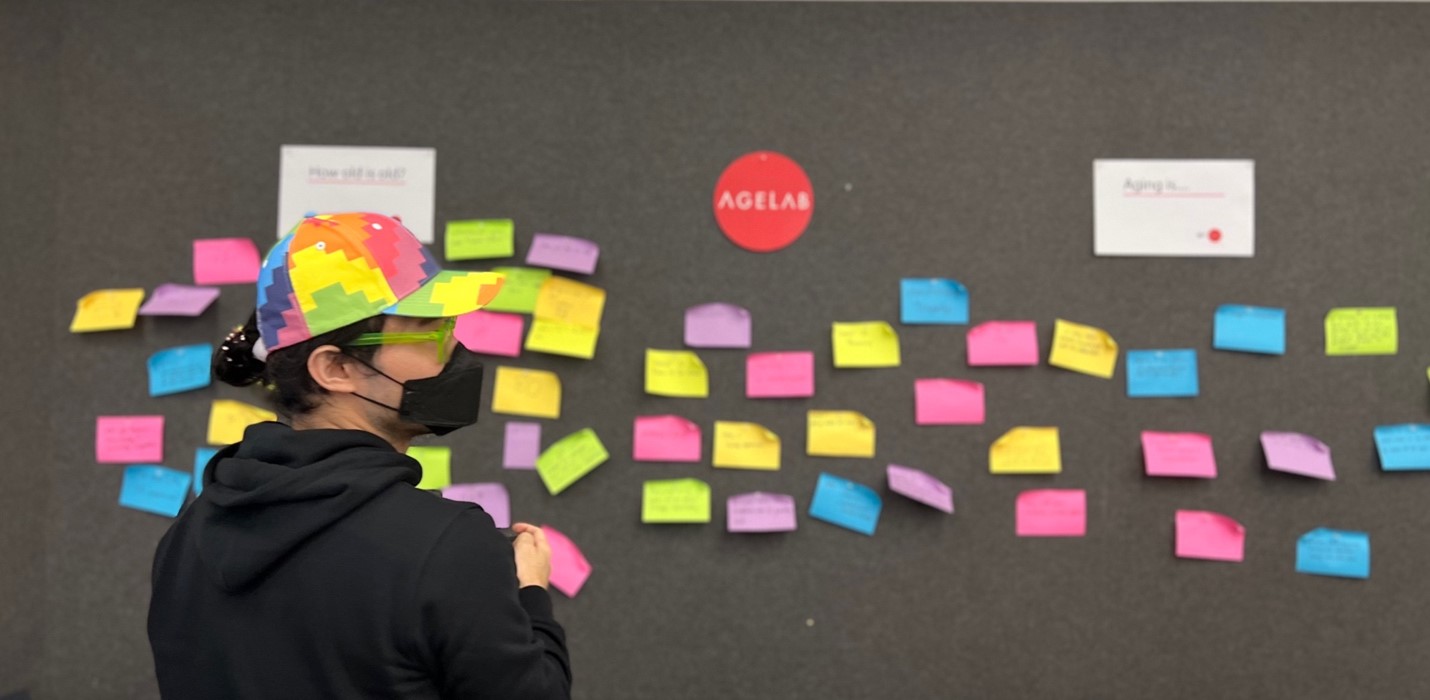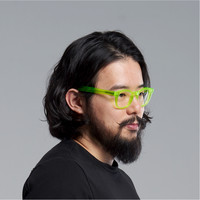Creative teaching in a course on aging: a designer's perspective
This spring semester, I have been lucky to work closely with Dr. Joseph F. Coughlin, Director of the MIT AgeLab, and the AgeLab research team to co-create a MIT graduate student course—11.547 Global Aging & the Environment. Right now, we are still only in the middle of the semester, but I want to share four principles I have relied on from a designer's perspective while preparing and designing this course.
Applying human-centered design (HCD) to pedagogy design
I, Dr. Coughlin, and the MIT AgeLab team have been excited to experiment with applying human-centered design and design thinking to this course. One of our objectives is to empower students to build their creative confidence and help them acquire “people skills” e.g., empathy, communication, leadership, collaboration, and storytelling, integrating hard and soft skills to solve social-technological-systemic challenges, especially in the post-pandemic period. Aging is definitely one of these issues.
Our goal has been to make the course content interactive and immersive by emphasizing the importance of listening to and understanding the unmet needs and pain points of our users—older adults. Due to the pandemic, the format of the course is hybrid, which has created more interesting teaching and learning opportunities. We considered broadly every touchpoint across the course experience from online to offline; for example, we considered how to deliver an engaging experience with the audience online while interacting with in-class participants, and how to design a set of learning materials that can extend the in-class learning experience.
The human-centered design approach is not only applied to the course content design, but also to the methodologies and the format of the curriculum. We aim to build a welcoming vibe, accessibility, and two-way communication channels that are suitable for learning and creating.
Empower people through empathy
In one section of the course, we invited members of the 85+ Lifestyle Leader Panel to a virtual class session, to allow students to interview them as part of their team research projects. Before conducting these interviews, we helped students create discussion guides with an emphasis on their research topics, build interview-capture sheets, iteratively experiment with interview simulations, and provide useful learning tips from our past experiences.
For most people, especially first-time user interviewers, a single conversation is insufficient to put themselves in the interviewees’ shoes. Therefore, the course has offered opportunities for students to learn empathy through practice and acquire capabilities in team projects. We purposefully invited experts and leaders from the aging- and healthcare-related industries to share their personal stories and case studies in class. We have had MIT AgeLab research scientists talk about the lab’s latest studies and insights, and we have encouraged students to initiate their own team projects relative to their interests and expertise.
The core spirit of applying HCD is to be empathetic to the key stakeholders within the scope of the project. In this case, we want students to pay attention to older adults’ needs when they share their first-hand experiences, especially the details they didn’t mention. We want students not only to design for them as external experts, designers, or consultants, but also design with them wholeheartedly as if they were their caregivers or family members
Unlock participants’ creative potential through co-creation
Participation is an integral part of this course. When we designed the students’ team projects, we were thinking less about designing the content for them and more about curating the process with them. Since we didn’t want to limit their creative thoughts on their research topics or forcefully select topics that happened to be relevant to the AgeLab’s research, we gave them bigger themes to brainstorm about, guided their design process, and collaborated with them to co-create meaningful products, services, and experiences.
The composition of each project team was diverse, e.g., graduate students from Harvard Graduate School of Design (GSD), Wellesley College, Massachusetts College of Art and Design, and MIT students from different majors, which made the co-creation process much more interesting.
In this course, we have five team projects covering multiple subject areas: safety, mobility, social isolation, product innovation, space design, retail experience, and hospital service. The co-creation process has made the course content rich, conversational, and playful, catering to students’ learning objectives as well as broadened the teaching team’s views.
Translate observation to design and business opportunities
Innovation can happen when an idea overlaps with three criteria: meeting peoples’ desires, the feasibility of the technology, and the viability of the business. The starting point is peoples’ needs and desires. Therefore, we put emphasis on cultivating students’ people skills. But we want students’ team projects not only to meet the needs of older adults, but also to develop ideas with great business potential. Our intention is to help scale up all these ideas by amplifying their value and making a positive social impact.
In short, the design process and result are critical in class, but business strategies are the fuel to make ideas real with investment from sponsors, government, and academic research. We know that translating students’ observations from field research to the design phase all the way to investment is a challenging process, but is critical and worth practicing in this course.

